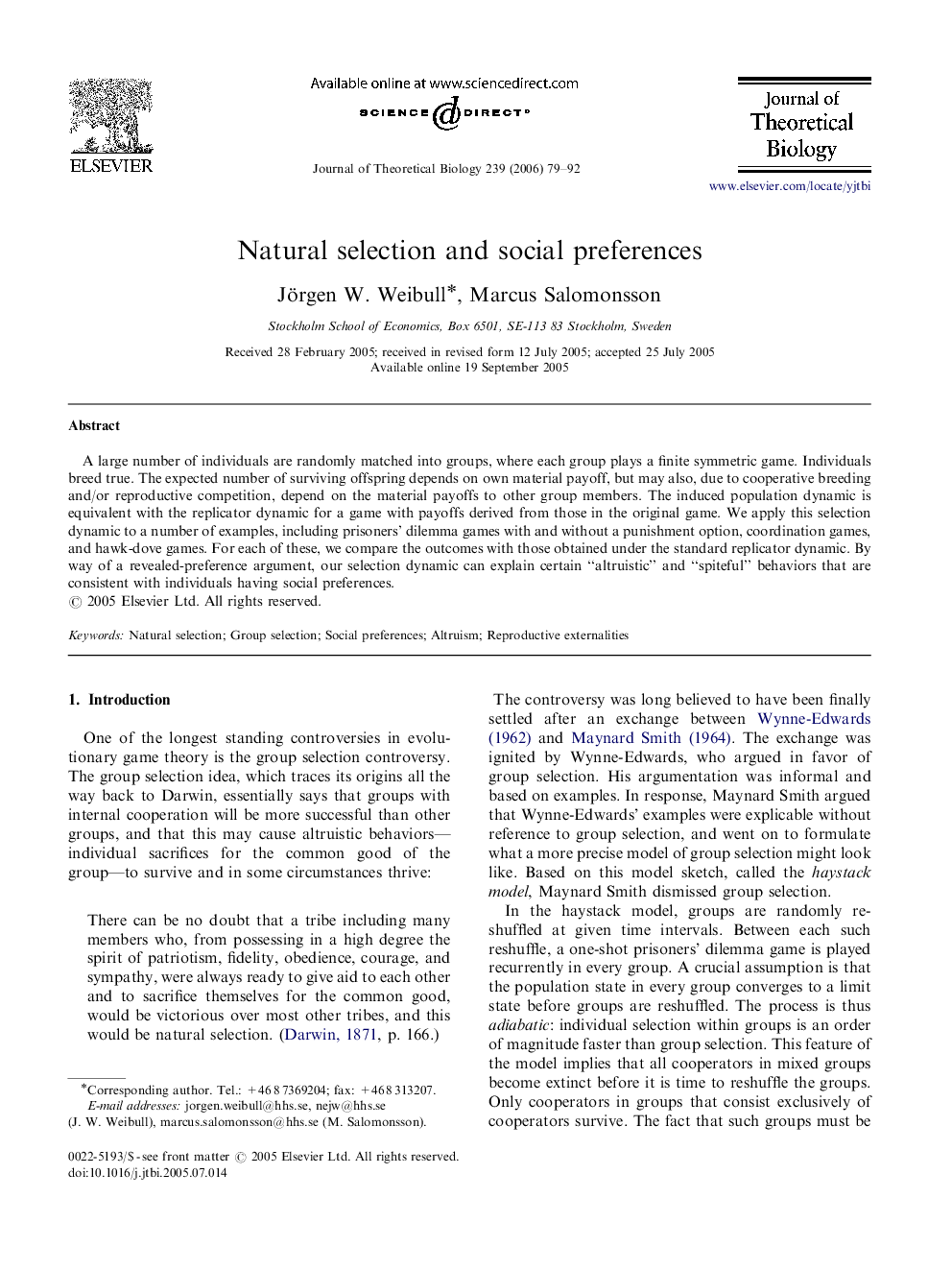| Article ID | Journal | Published Year | Pages | File Type |
|---|---|---|---|---|
| 4499634 | Journal of Theoretical Biology | 2006 | 14 Pages |
A large number of individuals are randomly matched into groups, where each group plays a finite symmetric game. Individuals breed true. The expected number of surviving offspring depends on own material payoff, but may also, due to cooperative breeding and/or reproductive competition, depend on the material payoffs to other group members. The induced population dynamic is equivalent with the replicator dynamic for a game with payoffs derived from those in the original game. We apply this selection dynamic to a number of examples, including prisoners’ dilemma games with and without a punishment option, coordination games, and hawk-dove games. For each of these, we compare the outcomes with those obtained under the standard replicator dynamic. By way of a revealed-preference argument, our selection dynamic can explain certain “altruistic” and “spiteful” behaviors that are consistent with individuals having social preferences.
